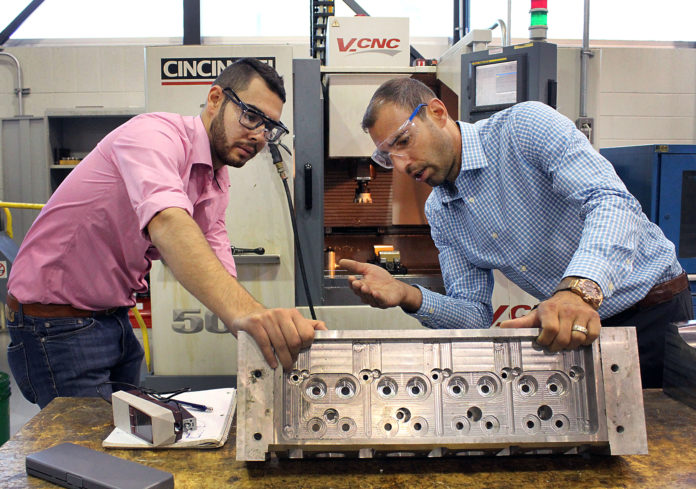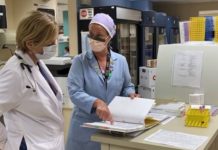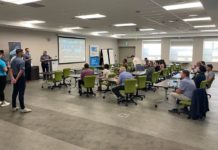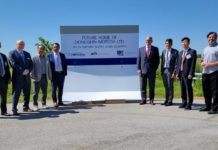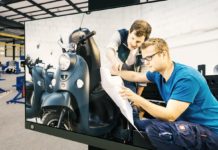It is said that necessity is the mother of invention. And according to Dr. Peter Wawrow, Professor in the Biomedical Engineering Technology program at St. Clair College, providing students with an outlet and opportunity to explore the applications linked to their studies in class is a necessity. Partnering with industry in research projects is where the magic of invention happens.
Wawrow gets quite excited when you talk about the wealth of opportunities for students to learn and grow. “Participating in research projects gives the students a unique and exciting perspective to seamlessly integrate the learning environment into a real-world application”.
Wawrow has been meeting with numerous community partners in order to develop projects for his third year class. One of those organizations is the John McGiveny Children’s Centre here in Windsor. Elaine Whitmore, CEO of the Centre says it is through the willingness and commitment to engage in novel partnerships across diverse fields such as education, health care, industry and technology, that the full potential of individuals can be realized. “Any research project aimed at improving the quality of life for children and youth with disabilities are areas we are passionate about.”
Third year Biomedical student Marirose Mazza has been involved in a research project in the past but is excited about the opportunities in her final year of the program. “If the material in the class is abstract to us seeing how it applies in real life is priceless. Working through concepts and ideas with the help of our peers and teachers puts us at a great advantage when we enter the field.”
The College is currently involved in a handful of applied research projects, most of which cannot be discussed openly due to the proprietary and confidential nature of the research. However students are eager to take their new found knowledge and skills and apply them to industry challenges.
Jonathan Azzopardi, President of Laval Tool and Mold in Windsor believes that industry education partnerships are essential, especially for companies who don’t have the depth of resources to research and innovate on their own. “We are full of good ideas but when you are dealing with day-to-day operational issues, having the time to explore those great ideas can be a challenge,” says Azzopardi. He goes on to say that being part of the educational process for students is a real benefit to both sides of the equation. “Students are the next generation of workers for our industry. When they get involved in applied research projects they gain a greater appreciation for what happens in real world applications.”
Daniele DeFranceschi, Professor in the Mechanical Engineering Technician – Industrial program is also involved with local industrial manufacturers on research projects. “It is the student who wants to accelerate his or her career chances who typically get involved in a research project,” says DeFranceschi. “These projects give students the chance to work with the employees in the company and receive instant feedback about their research.” DeFranceschi also points out that one project can often involve a number of programs at the college from Industrial Millwright and CAD/CAM to Automotive Product Design and Robotics.
Feras Antar is a third year Mechanical Engineering Technology – Automotive Product Design student and he has been working with DeFranceschi and he values this kind of experience. “It is so exciting to feel part of a project that may contribute to a company’s future growth. The experience of generating ideas, getting feedback in meetings, and being enthusiastically embraced by the company is highly motivating.”


